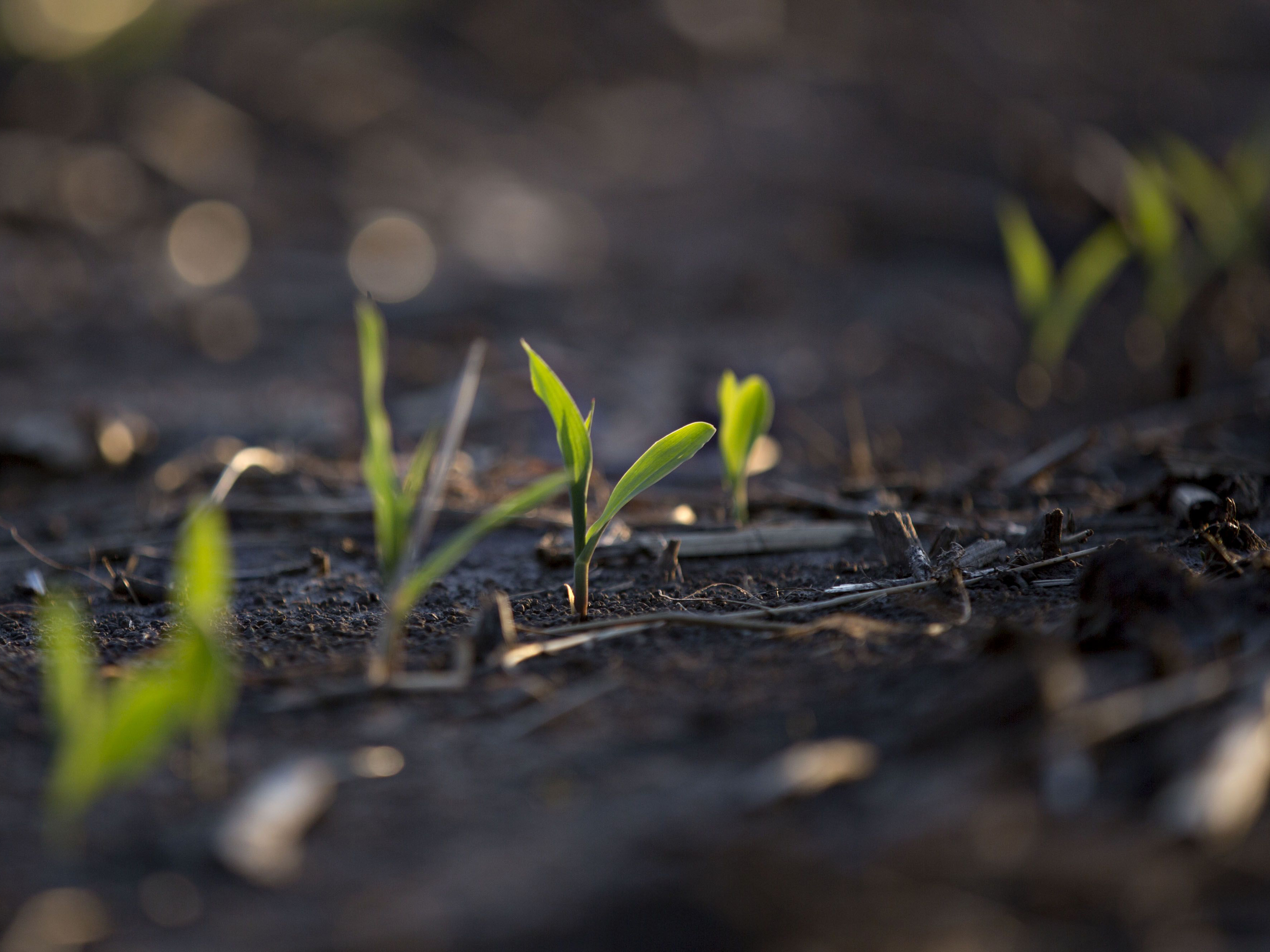
Visit Our Sponsors |
|
|
|
|
|
|
|
|
|
|
|
|
|
|
|
|
|
|
|
|
|
|
|
|
|
|
|
|
|
|
|
|
|
|
|
|
|
|
|
|

Global hunger and malnutrition are on the rise, as are temperatures and water shortages. Humanity must adapt crops to the changing climate by breeding hardier plants, but political and commercial interests continue to stymie those efforts.
Sharing seeds is critical to the global food system. To develop new varieties of crops that can thrive in a warmer, wetter or drier world, researchers must screen a wide range of plant materials to find key traits, like drought- and pest-tolerance.
A broad mix of plants and animals is vital to maintaining a healthy ecosystem. For good crops, you need good soil. For good soil, you need a multitude of plants, wildlife and even pests. Yet agricultural biodiversity continues to decline. The culprits are urbanization, pollution, industrial farming practices and climate change.
More than 500 representatives gathered last month in Rome to resolve longstanding tensions over the International Treaty on Plant Genetic Resources for Food and Agriculture, a 2004 accord intended to protect the global food supply. Six years of negotiations broke down over how to manage the treaty obligations of the genetic sequence inside seeds.
Giving government and private researchers access to more seeds allows them to breed plants better able to withstand everything from drought in the U.S. West to the spread of coffee rust in South America. The fewer seeds they have access to, the more difficult the task.
Currently, fewer than 200 of 6,000 plant species cultivated for food by humanity contribute meaningfully to global food output, and a mere nine of those account for 66% of total crop production, according to a February United Nations report. Almost one quarter of 4,000 wild food species — which can be even more nutrient-dense than their cultivated counterparts — are decreasing in abundance, according to the same report.
The market desire for high-performing plant varieties favored by big agriculture due to their high-profit potential further narrows the diversity in farmers’ fields.
The plant treaty includes a multilateral system by which signatories agree to share seeds that are both under their government’s control and in the public domain. In doing so, research would be encouraged and varieties shared. Commercial participants who patent resulting varieties agree to pay a portion of the profits into the Benefit Sharing Fund, which supports global seed conservation efforts.
The accord, however, hasn’t functioned as intended. The number of seeds that signatories agreed to exchange were limited to just 64 food and forage (intended for animals) crops, omitting most vegetables along with highly profitable commodities such as soybeans and cotton — giving major agribusinesses little incentive to participate.
As a result, industry money hasn’t flowed as expected into the benefit sharing fund. Meanwhile, some nations such as India and Ethiopia have strict protections on their genetic materials, making it almost impossible to export them under any international agreement.
A geographic schism since the treaty was signed has grown deeper over the rights to seeds’ genomics. Northern developed nations maintain that digital sequence information should not be subject to the benefit sharing requirement, while some developing nations interpret the treaty as including the exchange of genetic information as well as physical seeds.
“What it all comes down to is that everyone should have fair access to genetic resources and that poor countries can get access to the benefits that arise from using them,” Lise Lykke Steffensen, executive director of The Nordic Genetic Resource Center, an observer to the UN treaty, said in a statement. “It is crucial that the international community agree on these matters. Not least since climate change and natural disasters today pose a substantial threat towards genetic resources worldwide.”
Negotiations to expand the number of crops available for exchange, and find a sustainable payment model, began in 2013. Consensus has slowly built towards a multi-part solution. Notable changes include: Users such as agriculture companies would pay an upfront fee — likely a set percentage of profits — for access to an expanded catalog of seeds. The fee would go directly into the benefit fund.
The disagreement over genetic sequence information was tied to access. If such information ended up on a public database, anyone — even biotech or pharmaceutical companies — could use it without any obligation to pay into the fund, said Pierre du Plessis, a negotiator for Africa. Companies argue such information should remain freely available for research purposes.
That wasn’t the only hurdle. Many companies are pushing for an option for occasional access to specific seeds without a full subscription, giving them the flexibility to take only what seeds they need without a long-term commitment. Opponents argue it undermines the entire basis of the treaty. “If you can access a few resources when you need them, it’s a disincentive to subscribe,” said du Plessis.
The fatal flaw of the original agreement was “an overestimation of value [of the seeds] and an underestimation of how willing countries would be to add seeds in the system,” said Paul Olson, head of Germplasm Intellectual Property and Plant Variety Protection for German seed company, KWS SAAT SE. Olson calls the 2.2 million distinct seed samples so far made available via the treaty a “mixed bag.” Only some are likely to have immediate value, he said.
To date, only one seed company, Nunhems Netherlands, which has commercialized 10 vegetable varieties using material from the seed exchange, has paid $153,835 into the benefit sharing fund. In total, the fund has raised $28 million, but mostly from voluntary government donations.
Despite its flaws, the treaty is nevertheless helping farmers. In total, 81 projects to assist seed adaptation in 67 developing countries have been supported by the fund. Lost varieties of native, drought-tolerant yams, millet, and sorghum have been reintroduced in Malawi from international gene bank collections. Egyptian farmers welcomed the return of rare citrus varieties, and community seed banks were established in vulnerable regions of Guatemala.
There are indirect benefits as well. Partnerships have been formed, information and technology shared, researchers trained and farmers are now better able to adapt to climate change, according to a recent study co-authored by Michael Halewood, head of policies for crop and tree diversity management at Bioversity International. The millions of dollars being debated for the benefit sharing fund are “peanuts compared to what gets thrown away if the system were to collapse,” he said.
As of now, developed countries don’t support continued formal negotiations, while developing nations warn that the future of the Plant Treaty is at stake if a revised deal isn’t eventually reached. “I hope this is a separation, not a divorce,” said Halewood.
RELATED CONTENT
RELATED VIDEOS
Timely, incisive articles delivered directly to your inbox.




.jpg?height=100&t=1715228265&width=150)

